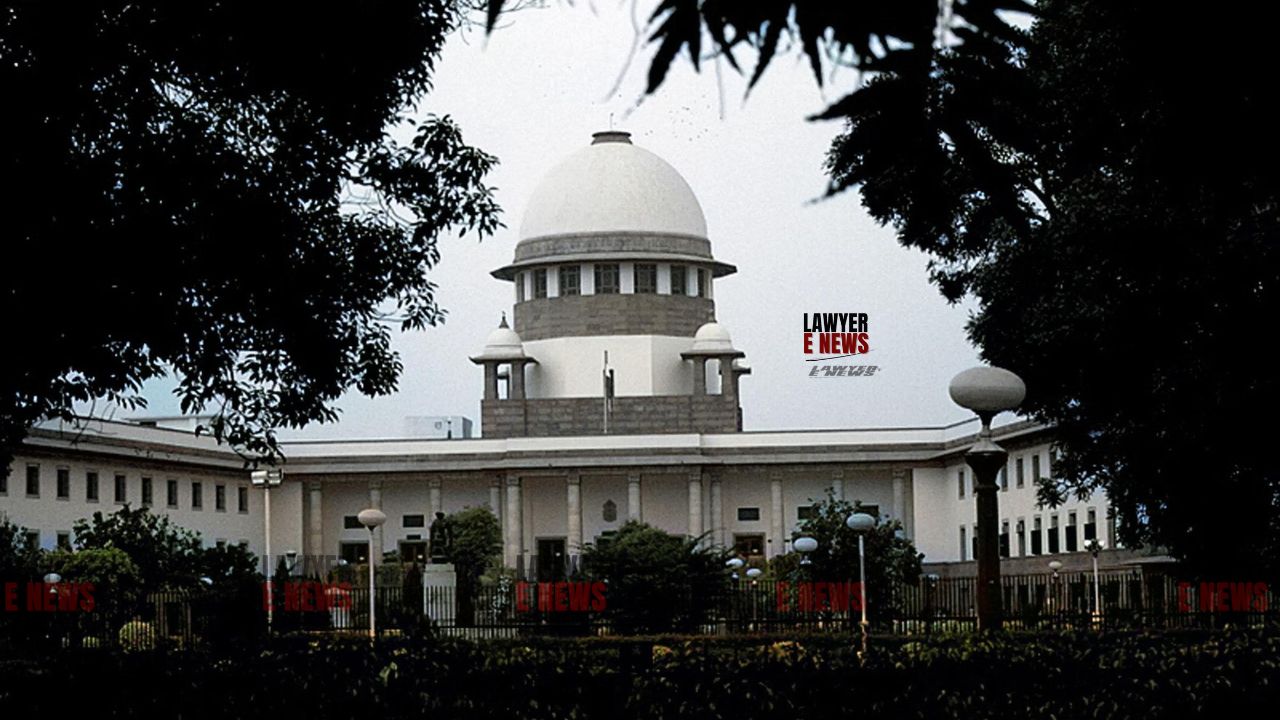-
by Admin
15 February 2026 5:01 PM



Supreme Court of India provided critical guidance on the interpretation of "sufficient cause" under Section 29A(4) of the Arbitration and Conciliation Act, 1996. The Court extended the mandate of an arbitral tribunal, emphasizing the necessity of expeditious yet fair resolutions in arbitration.
The dispute arose from a works contract between Ajay Protech Pvt. Ltd. (appellant) and the General Manager of a public enterprise (respondent). When disagreements surfaced, arbitration was invoked, and a sole arbitrator was appointed by a court order in February 2019. The arbitration commenced in June 2019, with pleadings completed by October 2019, setting the statutory deadline for the award to October 2020 under Section 29A(1).
By mutual consent, the deadline extended to April 2021 as per Section 29A(3). However, the COVID-19 pandemic disrupted the timeline. The Supreme Court's suo motu orders on the pandemic excluded the period from March 15, 2020, to February 28, 2022, from the computation of limitation periods, allowing the arbitral mandate to extend effectively until March 31, 2023. Despite this, the appellant filed an extension application only on August 1, 2023, which the Gujarat High Court dismissed, citing a delay of over two years. Aggrieved, the appellant approached the Supreme Court.
The bench, led by Justice Pamidighantam Sri Narasimha, emphasized the statutory framework allowing courts to extend an arbitral tribunal's mandate "either prior to or after" its expiry. Highlighting the objective of arbitration as a user-centric and effective mechanism, the Court stated:
“The termination of mandate under Section 29A is conditional upon the non-filing of an extension application. It does not preclude the Court from extending the mandate even after its expiry if sufficient cause exists.”
The Court referred to Rohan Builders v. Berger Paints India Ltd., which held:
“Section 29A(4) empowers the court to extend the time for making an arbitral award beyond 12 or 18 months, irrespective of when the application is filed. This ensures that arbitration remains a flexible and effective dispute resolution mechanism.”
Defining "Sufficient Cause"
Interpreting the term "sufficient cause," the Court underscored its context-specific nature, particularly in arbitration cases:
“The meaning of 'sufficient cause' must take color from the purpose of arbitration: facilitating effective and timely dispute resolution. It ensures that parties’ efforts to resolve their disputes contractually are not undermined by procedural delays.”
“Efficiency in arbitral proceedings is integral to the effectiveness of arbitration. However, courts must exercise discretion judiciously, ensuring that the extension does not facilitate abuse of the process.”
The Supreme Court reviewed the timeline and found that the pandemic, changes in the arbitral panel, and the technical complexity of the case justified the appellant's delay in seeking an extension. The Court noted:
“The appellant acted in good faith, as evidenced by the parties’ agreement on May 5, 2023, to seek judicial extension for completing the award. The hearing was concluded, and only the final award remained.”
The High Court's conclusion of a two-year delay was deemed erroneous, as the pandemic-related exclusion applied until February 2022. The actual period requiring justification was only from March 2023 to August 2023.
Allowing the appeal, the Supreme Court set aside the High Court’s decision and extended the tribunal’s mandate until December 31, 2024. The Court emphasized the need for arbitration to proceed seamlessly:
“Judicial discretion must bridge the gap between procedural rigidity and the overarching objective of dispute resolution. The pandemic-induced disruption, coupled with mutual agreement among parties, constitutes sufficient cause for extension.”
This judgment affirms the judiciary’s role in supporting arbitration as an efficient dispute resolution mechanism, balancing procedural discipline with fairness. It clarifies that courts possess the flexibility to extend arbitral mandates even post-expiry, provided there is sufficient cause and genuine intent to conclude the proceedings.
Date of Decision: November 22, 2024
